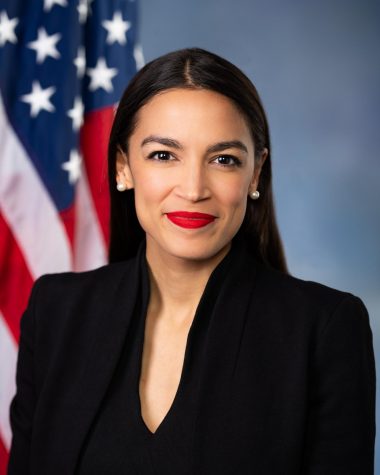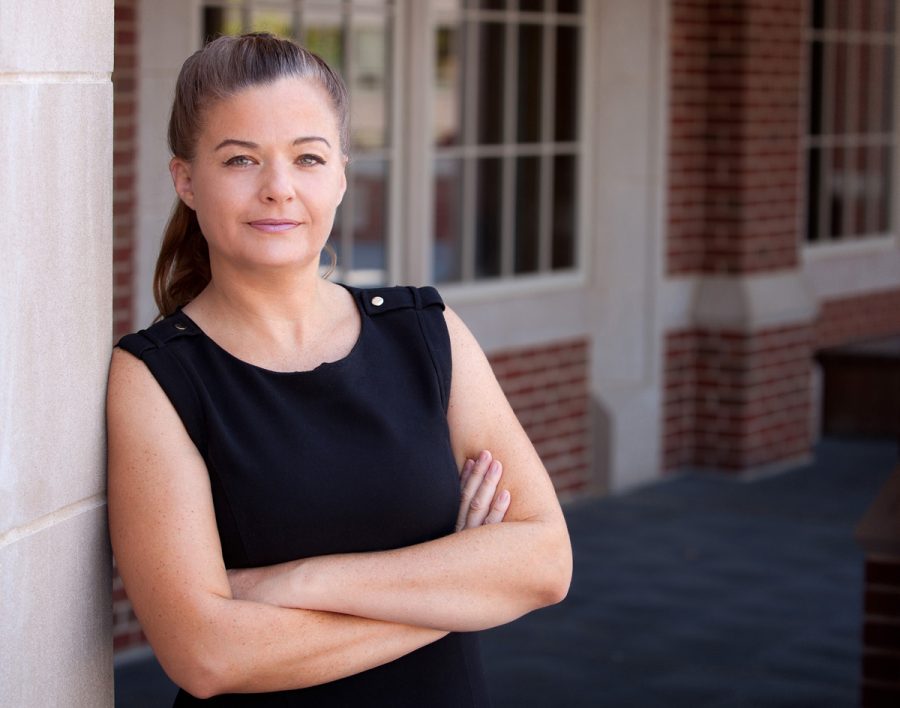Universities see rise in female Political Science majors
“I think that seeing other women such as Vice President Kamala Harris and Alexandria Ocasio-Cortez taking leadership and raising their voices is really inspiring. If they can do it, so can I.”
Jen Ziemke, an associate professor of International Relations, has worked heavily in global affairs and politics almost her whole life.
Feb 11, 2021
More female college students than ever are choosing to be political science majors. While progress in gender equality can be expected in a myriad of fields, political science has always been regarded as a male-dominated major. In 2006, the Yale News published an article stating that there was at least a 10% difference between the amount of men and women in popular fields of study, such as history, English and political science. While women dominated some departments like natural sciences, the gender gap remained large in other areas such as political science. Yet, after many years, it seems like the gap is becoming thinner.
“Early on, I think there was a general sense that it wasn’t appropriate for women to study politics, because there were so few women in politics, and politics was really seen as a man’s domain — despite literally generations of women’s involvement in the abolitionist movement, the temperance movement and the women’s suffrage movement among other things,” said Margaret Farrar, a political science professor at John Carroll University. “Those prejudices have lasted a long time. In 2010, women were still only 26% of full-time faculty in political science, and only about a third of full professors of political science [today] are women.”
According to The American Political Science Association, the number of women obtaining political science degrees has gradually risen since 2015. After the start of the COVID-19 pandemic in March 2020, these numbers have skyrocketed. The pay rate has also increased for female graduates in political science fields when compared to their male counterparts, according to College Factual. While these strides in equality should be celebrated, it is only natural to wonder why these changes are occurring.
Women’s rights have been expanding in recent years, as bills on domestic violence prevention and abortion are introduced more frequently. This also may be a result of more women being elected to Congress than ever before. The Pew Research Center states that women hold 27% of Congressional seats on the national level— a new record for the entire country. Analysts from the Pew Research Center have suggested that this rise in representation inspires more women to run for office and pursue an education in political science.
“I do think that there have been a number of high-profile social-political movements that have made political activism really visible for young people right now: the Black Lives Matter movement, Greta Thunberg’s environmental activism, David Hogg’s Never Again (gun control) organization, the Me-Too movement, etc. are helping to educate and mobilize young people in powerful ways,” Farrar stated. “And the pandemic has demonstrated how urgent and important public health and public policy are for all of us. When people become interested in public policy, they want to learn about politics!”
“I am majoring in political science because I honestly want to help people who are in need,” said Isabelle Marincheck ‘24. “While there are many ways to go about doing that, I chose political science because it’s something that intrigued me, and it’s something that is always changing.”
According to Data USA, more people are getting degrees in political science, and the rise in female representation is a consequence. Their data shows that the number of degrees awarded in political science has grown since the start of the 2020 pandemic. After the events of the past year, including the Black Lives Matter movement, the election and other large-scale political events, more students are interested in educating themselves on political affairs. Others may be inspired to change the country and seek an education to do so.

“Political Science is a kind of harbor in the storm. It is imperative during these difficult times that students find a place to help make sense of the beauty, the challenge and the opportunity around them,” said Jen Ziemke, a political science professor at John Carroll.
Marincheck said “I think that seeing other women such as Vice President Kamala Harris and Alexandria Ocasio-Cortez taking leadership and raising their voices is really inspiring. If they can do it, so can I.”
An alternative viewpoint is that the increase of women attending college in general has led to the boom in the field. The National Center for Education Statistics says that women made up 57% of college attendants in 2017, up from 50% in 2007. It can be assumed that female representation across all degrees would increase because of this rise in attendance. More people could also afford a college education because of cheaper online courses.
It is yet to be determined whether this boom will continue. Nevertheless, it is a large step for gender equality that is to be saluted.
“We in the department hope that the booming interest in Political Science at the university generates a renewed focus on all of the social sciences in the upcoming new strategic plan for John Carroll,” Ziemke continued. “It frankly just makes sense for the university to follow the students’ lead and work together with us to help everyone chart a collective course for their future.”














